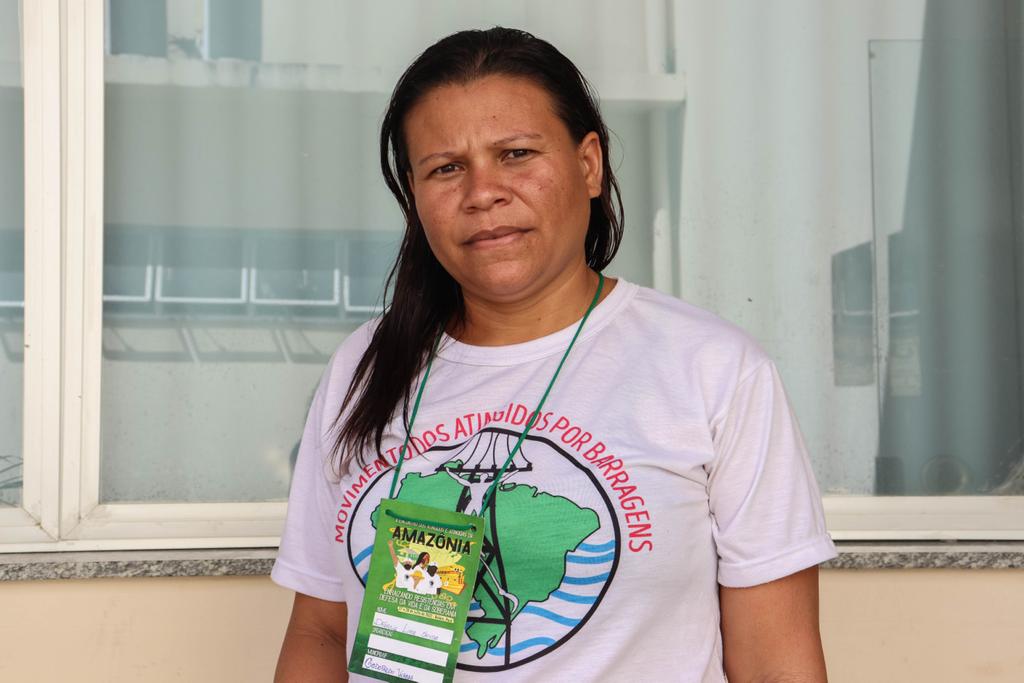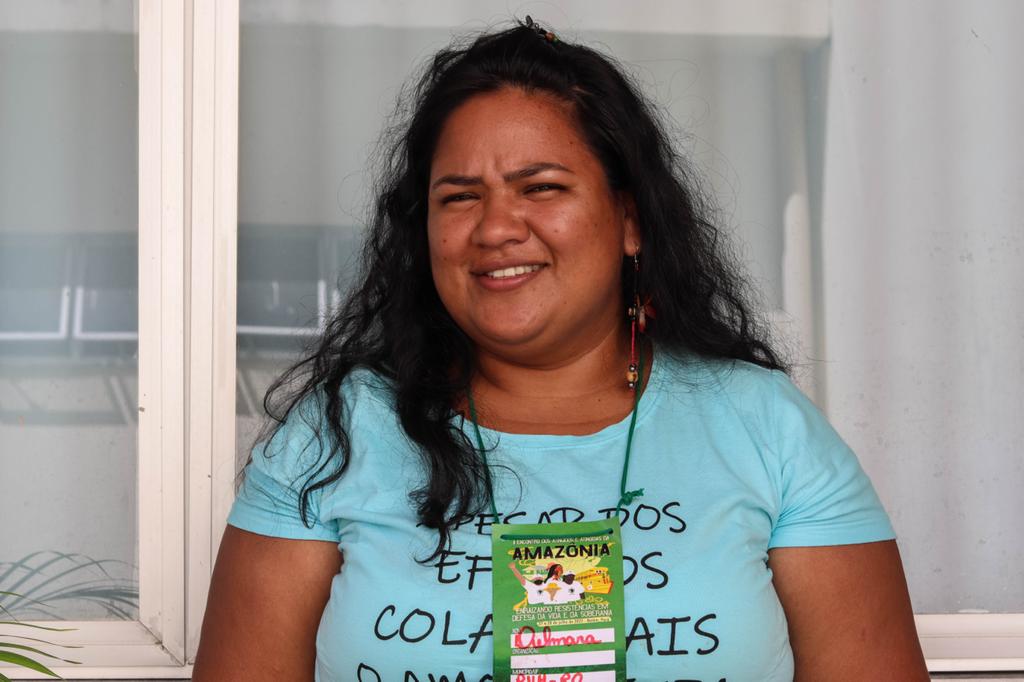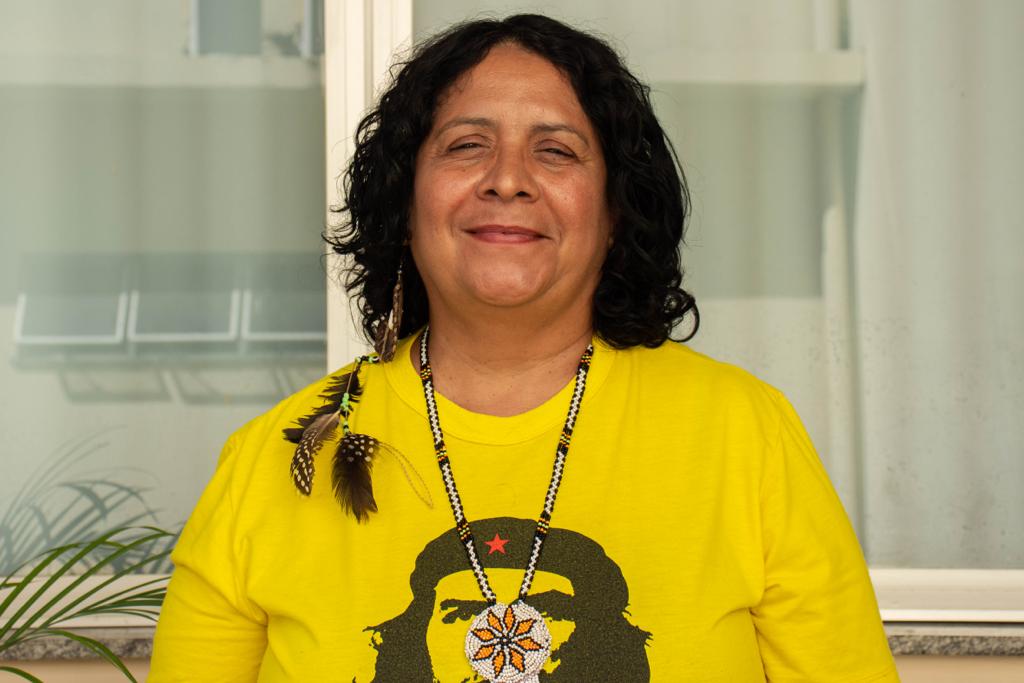Female Leaders in the struggle against dams attend the 2nd Meeting of the Affected People in the Amazon Rainforest
In general, the construction of a dam affects the way of life of an entire community, but it especially harms women´s lives
Publicado 29/07/2022 - Actualizado 29/07/2022

“I’ve always been struggling! So, I will always be encouraged and an encourager.” This is how teacher Daiane Lima, 33, explains her motivation in the battle she faced for the right to potable, contamination-free water in the community where she lives, Aurizona, a district in the municipality of Godofredo Viana (MA), which is in western state, where one of the largest gold mining companies in the world operates.
After the locality was affected by the rupture of a tailings dam of the Canadian multinational Equinox Gold, the groundwater in the region has been polluted by metals with toxic potential that can cause itching, skin diseases and neurological and respiratory problems. Daiane’s story is mixed with the reports of so many other female leaders who stand out in their resistance to the violations of rights practiced in the Amazon rainforest territory by enterprises linked to mining, the energy sector and agribusiness, among others. They are faces like hers that can be seen at the II Meeting of the Affected People from the Amazon rainforest, which has been taking place since yesterday, 27, at the Federal University of Pará, in the capital Belém, and ends today.
In general, the construction of a dam affects the way of life of an entire community, but it especially harms the lives of women, because they are responsible for the domestic economy and the care of the family. In this context, the works of large companies, such as Mineradora Aurizona (a subsidiary of Equinox), profoundly transform the lives of women from the beginning of construction, because, like other groups in vulnerable situations (such as children and adolescents), they are not included in the decision-making processes for implementing projects, as pointed out by Flávia Amaral, PhD in Law from UFPA and senior researcher at Plataforma Cipo. “They do not attend the big meetings. There is no direction within the environmental licensing of public policies that benefits women, children and adolescents in the construction of these projects”, points out the researcher.
Flávia researches topics related to the dam and human rights in the national and international context, focusing on environmental, indigenous and other traditional peoples. According to her, it is important to conceive the territory and the body as a single thing. In other words, recognizing that what impacts the territory in which a woman lives will also impact her psychic, physical and emotional health. “There are reports of body aches due to the weight that is carried by pressure, by changes, and by the upcoming fear. In the context of a dam, there is always the fear of a rupture and the concern for your family. There is also an increase in domestic and sexual violence, because, during the construction of a dam, there is this arrival of a large number of men that will impact the local way of life”, she explains.

Delmara Mura, from Calama ( a Porto Velho district), is affected by the Tabajara Dam project. Photo: Gabrielle Sodré / MAB
The evaluation presented by the researcher is confirmed by Daiane in her experience in Maranhão. “Prostitution there is very substantial (…). When the company got there, it did not have that amount of men it has today. Then they deceive, put in the car, go for a walk, pay something here, pay another something there and that’s it. They leave them pregnant,” she says.
Judite da Rocha, MAB’s coordinator in Tocantins and a master in public health from Fiocruz, lives in Porto Nacional (TO) and is also affected by the construction of projects with great impacts for the state. She accompanied four dam constructions in Tocantins and was affected by a dam in the state of Paraná, where she camped for two months at the construction sites demanding her recognition as affected and the guarantee of her rights. According to Judite, who is taking part in the meeting for the second time, the space is essential for the construction of a debate among those affected people. “There are different voices from the Amazon rainforest echoing to the world. Comrades Nicinha, from Rondônia, and Dilma, from Pará, were killed in this struggle, because they have challenged powerful interests”, she defends. All the women affected by the dams mentioned in this article are participating in the II Meeting of Affected People in the Amazon rainforest. Female faces, by the way, are the majority in the event’s auditorium. This is a reflection of the very dynamics of the struggle in the territories.

Judite da Rocha, who lives in Porto Nacional (TO) has already been affected by the construction of dams in Paraná and Tocantins. Photo: Gabrielle Sodré / MAB
Despite all the vulnerabilities and challenges they face, women are often leaders in the resistance and confrontation process of large companies and governments to defend their families and communities and struggle against forced displacement, environmental damage, loss of income, and the transformation of the way of life of their localities. We have, as an example, the Arpilleras project, in which MAB women create embroidered panels in collective workshops to exchange experiences, elaborate on their traumas and denounce the violations they suffer. In Altamira (PA), women were historical leaders in the fight against Belo Monte, from Tuíra Kayapó, who became known in the late 1980s for confronting the president of Eletronorte at the time, to the present moment, where so many affected continue to struggle for reparation of their rights and for the access to justice.

